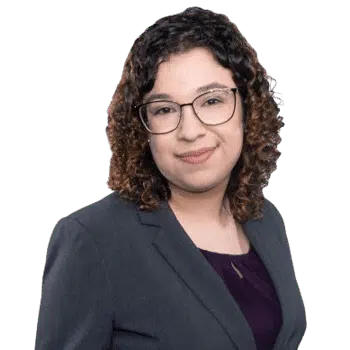Group Therapy’s Critical Role in Veteran Healing and Substance Abuse Treatment
Written by The Recovery Village Columbus
& Medically Reviewed by Jenni Jacobsen, LSW
Medically Reviewed
Last updated: 03/02/2024
The journey through substance use treatment typically involves a comprehensive array of therapeutic interventions for individuals, extending from individualized counseling to the collective dynamics of group therapy. Particularly for veterans in the throes of recovery, the implementation of group therapy sessions—carefully curated to resonate with their specific experiences and rehabilitation needs—emerges as an indispensable therapeutic service.
The Foundation of Veteran Rehabilitation: Embracing Group Therapy
Within the rehabilitation landscape for veterans, group therapy manifests as a vital therapeutic avenue, setting itself apart by fostering a collective healing process alongside the introspective journey of individual therapy. This therapeutic mode is integral to their comprehensive treatment plan, constructing a supportive environment for recovery. Through group therapy, veterans encounter a unique opportunity to establish profound connections with peers living with similar struggles, thereby nurturing recovery and personal growth.
Mental Health Prioritization in Group Therapy
Veterans participating in rehabilitation programs are steered towards group therapy sessions with a pronounced focus on mental health. These sessions ambitiously tackle a spectrum of mental health challenges, inclusive of:
- Depression
- Anxiety
- Post-traumatic stress disorder (PTSD)
- Bipolar disorder
- Schizophrenia
- Dual diagnosis scenarios involving substance use intertwined with mental health issues
Empirical research reveals equal benefits of group therapy when compared to individual sessions, notably in the alleviation of depressive symptoms and the reduction of suicidal ideation among veterans grappling with PTSD. Its proven success in mitigating the symptoms of both depression and PTSD accentuates its indispensable role in the therapeutic arsenal for veterans.
With a notable percentage of veterans from contemporary conflicts struggling with depression or PTSD, the benefit of group therapy in addressing these challenges is invaluable.
Unveiling the Benefits of Group Therapy for Veterans
Recognized by the Veterans Administration, group therapy offers a multitude of benefits for veterans, enriching their recovery journey with enhanced social integration, emotional support, and refined coping strategies. Highlighted benefits include:
- Social engagement enhancement: Group therapy invigorates veterans’ social engagement, honing communication skills and fostering meaningful interpersonal connections.
- Emotional solidarity: It counters the pervasive sense of isolation among veterans, offering a platform for shared empathy and mutual understanding within a community of peers.
- Coping mechanism cultivation: The group environment is conducive to the exploration and reinforcement of effective coping strategies, essential for navigating stress and mental health concerns.
- Community of support: A foundational element of group therapy is the establishment of a supportive network, crucial for dispelling feelings of solitude and fostering a collective sense of belonging.
- A haven for sharing: Veterans benefit from a secure atmosphere to openly discuss their experiences and challenges, facilitating a journey of mutual understanding and healing.
- A mosaic of coping strategies: Through shared narratives, veterans gain exposure to a diverse array of coping strategies and perspectives, offering valuable insights for personal recovery strategies.
- Empathy and comprehension expansion: Active participation and support within the group enhance veterans’ empathy and understanding, fostering a deeper connection to the collective experience.
Group Therapy Sessions: Exploring Diverse Themes
Group therapy sessions for veterans delve into an array of themes, directly responding to their unique needs and experiences. Predominant themes encompass transitioning back to civilian life, enhancing personal and familial relationships, managing stress, and adopting strategies for mental health management and substance use reduction.
Adopting Effective Therapeutic Approaches
Group therapy for veterans integrates various therapeutic techniques, including Cognitive Processing Therapy (CPT) for PTSD, Cognitive Behavioral Therapy (CBT), Present-Centered Therapy, and mindfulness practices. These approaches aim to assist veterans in processing trauma, adopting healthier thinking patterns, and cultivating present-moment awareness.
Expert Leadership in Group Therapy
The facilitation of group therapy sessions is entrusted to licensed mental health professionals with specialized expertise in veteran care, ensuring that sessions are led with sensitivity to the unique challenges faced by this population. Programs like the FORTITUDE initiative at The Recovery Village underscore the importance of informed and compassionate leadership in these therapeutic settings.
Group Therapy’s Essential Role in Veteran Treatment
While the frequency of group therapy sessions may vary across treatment settings, its significance in the treatment and recovery process for veterans remains paramount. These sessions not only provide a space for shared healing but also underscore the critical role of collective therapeutic engagement in fostering lasting recovery.
Active Participation: A Pathway to Enhanced Recovery
Veterans are encouraged to fully engage in group therapy, embracing the shared space as a medium for profound personal insight, communal support, and the development of resilient coping mechanisms. Through active participation, veterans can harness the collective wisdom and strength of their peers, paving a robust pathway toward recovery.
The FORTITUDE Program: Tailored Group Therapy for Veterans
The FORTITUDE program at The Recovery Village stands as a beacon of specialized support for veterans, offering group therapy sessions designed to address both addiction and co-occurring mental health issues like PTSD and depression. This program exemplifies a commitment to providing a therapeutic environment that is both understanding and supportive, guided by professionals dedicated to facilitating veterans’ journey towards healing and recovery. Contact our Veteran Advocates today to get started.
View Sources
Resick, Patricia A., et al. “Effect of Group vs Individual Cognitive Processing Therapy in Active-Duty Military Seeking Treatment for Posttraumatic Stress Disorder: A Randomized Clinical Trial.” JAMA Psychiatry, 2017. Accessed November 12, 2023.
Lamp, K.E., et al. “Individual and group cognitive processing therapy: Effectiveness across two Veterans Affairs posttraumatic stress disorder treatment clinics.” Psychological Trauma: Theory, Research, Practice, and Policy, 2019. Accessed November 12, 2023.
Inoue, Catarina, et al. “Veteran and Military Mental Health Issues.” StatPearls Publishing, January 2023. Accessed November 12, 2023.
Patín-Betancourt, Yahaira. “Benefits of Group Therapy Sessions for PTSD.” U.S. Department of Veterans Affairs, June 26, 2023. Accessed November 13, 2023.
U.S. Department of Veterans Affairs. “PTSD.” August 23, 2023. Accessed November 13, 2023.
Thompson-Hollands, Johanna, et al. “Alliance across group treatment for veterans with posttraumatic stress disorder: The role of interpersonal trauma and treatment type.” Group Dynamics, March 2018. Accessed November 13, 2023.
Authorship


